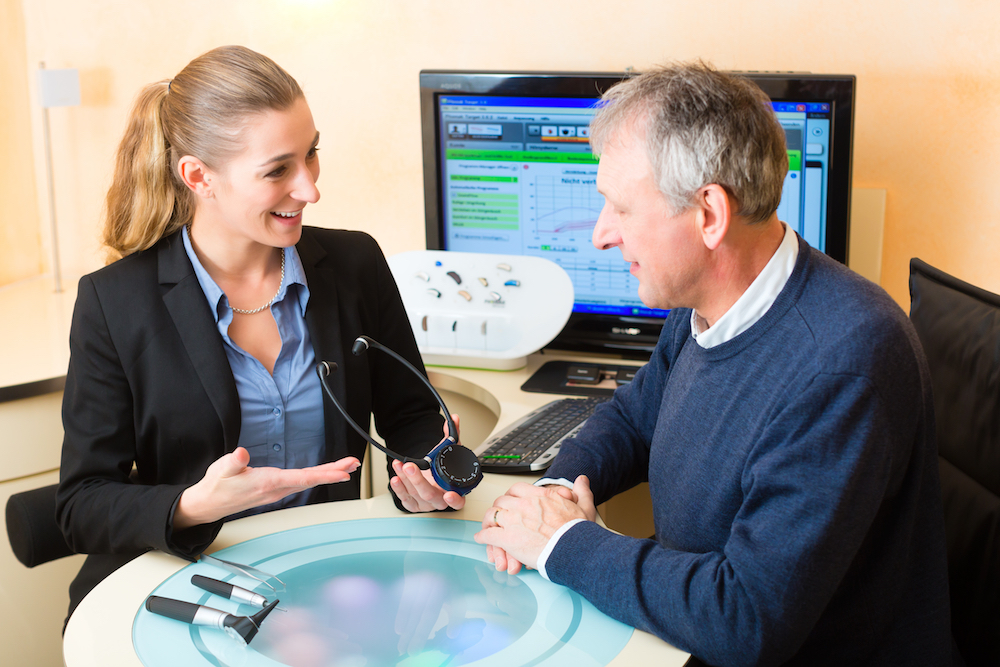What are invisible-in-canal (IIC) hearing aids?
If you’ve been told by your audiologist that you may need a hearing aid,

By: admin | June 23, 2020
When was the last time you got your hearing tested? If the answer is either ‘I don’t know’ or ‘some time in childhood’, you certainly aren’t alone. Babies born today are given a basic hearing screening on the day that they are born or shortly afterward. This screening tests to see if babies respond to sounds in both of their ears. If this screening is all clear, our next hearing test usually happens at school. This could be more in-depth, offering a deeper understanding of the range of sounds that we are able to hear and how well our hearing compares to others, and not just whether or not we can hear. Once we are out of the school system, we don’t often think about hearing tests. Your doctor may recommend yearly physicals; your dentist might send you an appointment note twice a year. If you wear glasses, your optometrist will probably recommend eye tests at least once every two years, to make sure your prescription is still right and make any necessary adjustments. There doesn’t seem to be such clear advice when it comes to our hearing. So, how often should you get a hearing test as an adult?
The main reason that we don’t get our hearing tested is that we assume that hearing loss is something that we don’t need to worry about until we get older. But hearing loss is something that we can experience at any age. Illnesses and conditions can lead to hearing loss. Some medications can affect our hearing. Regular exposure to loud noises can affect your hearing, either temporarily or permanently, and sometimes, the gradual hearing loss which we might expect with age begins much sooner than we might imagine. Generally speaking, the sooner the signs of hearing loss are spotted, the more chance we have at stopping them, slowing the process, or even restoring hearing. Medication, hearing aids, and even lifestyle changes can all be beneficial, but only if we know what we are dealing with. That’s why it’s so important that we get regular hearing tests, even when our hearing seems fine. If you get an annual physical with your primary physician, they should be able to offer a basic hearing screening. This won’t be the same as a full hearing test, but it should show up any changes which need to be investigated further. Your physician will then recommend that you see an audiologist if they think that you require a full hearing test. Even if you only have a physical every other year, or less often, it’s still worth asking about a hearing screening.
Away from our standard physicals, the main reason to get a hearing test is that you have experienced hearing changes. This doesn’t have to mean hearing loss. If you are experiencing earache, tinnitus or any kind of leakage from your ears, it’s worth booking an appointment for a hearing test with your audiologist. Many cases of tinnitus are temporary and get better on their own. But, it’s always worth getting checked out if you experience ringing or other sounds within your ear, as it can be a symptom of a more severe problem. Other signs that you may need a hearing test soon include:
Whether these changes come and go, or are constant, it is worth seeing someone to get to the root cause and to define a treatment plan or coping strategy if necessary.
If you haven’t had a hearing test since you were a child, it’s a great idea to make an appointment with an audiologist, even if everything seems fine. Other than that, try to get frequent checks, and see an audiologist if you fail a screening, start to experience hearing changes, or have any questions about your hearing. Call 303-534-0163 to get help or to learn more about The Hearing and Tinnitus Center today.

If you’ve been told by your audiologist that you may need a hearing aid,
By: admin | September 21, 2020
